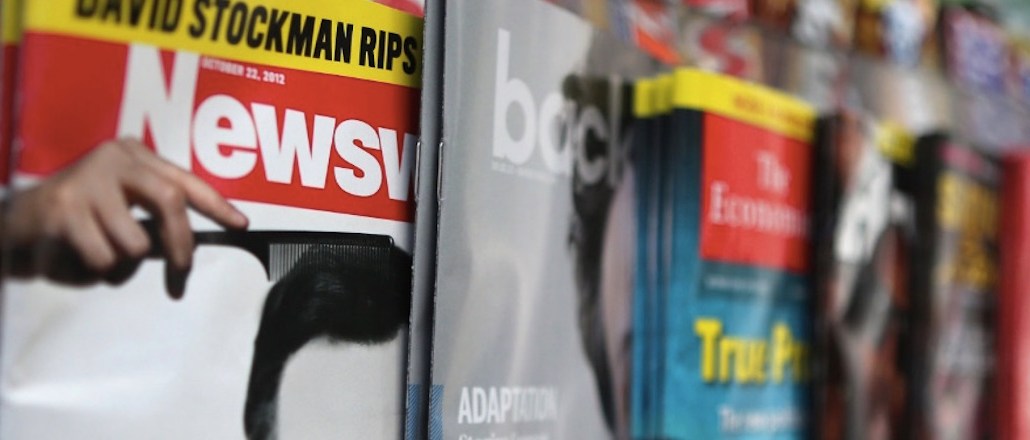Secure your place at the Digiday Publishing Summit in Vail, March 23-25

Newsweek’s European business became profitable for the first time this past quarter. Now, parent IBT Media is hoping to keep the edition in the black with new designs for Newsweek International along with sibling title International Business Times.
With fewer ads and less clutter, the redesigns launching Feb. 1 are aiming for an easier reading experience and better ad viewability. IBT, which is entirely ad-supported, has shed an average of three ad slots per page to speed up load times. Ad placements on both sites have been moved higher up the page, and advertisers requesting higher viewability rates can buy “sticky” ads that remain in view as readers scroll. IBT Media claims it can offer ads that are up to 80 percent viewable, as measured by Moat.

Newsweek has a dual ad/subscription revenue model (costing subscribers £15/$21 a month for combined digital and print, £6/$8.50 for digital-only access), and the user experience varies accordingly. All visitors will see more native ad formats, which blend in with the editorial environment, while subscribers see larger image formats for both advertising and editorial articles. Video is also going to be a major area of focus, and the publisher will introduce its first video pre-rolls in the coming months, both for desktop and mobile devices.
Like most publishers mobile traffic is around the 50 percent mark, though that’s higher across regions like Africa, which is widely regarded a mobile-first population. An area Newsweek and International Business Times haven’t yet exploited is mobile video, and Jeremy Makin, IBT Media’s vp of sales for EMEA, wants to change that.
“This quarter I’ll be pushing to start monetizing mobile video, and using existing video content and running mobile pre-rolls. You don’t make as much money from mobile pre-rolls as you do on desktop but it’s still an avoids channel to exploit,” he said.

The rise of ad blocking has laid bare some uncomfortable truths for publishers. Newsweek’s hybrid revenue model has made it less vulnerable to ad blocking than the younger-skewing IBT. But ad blocking usage varies wildly depending on which sections visitors access, according to Makin.
Publishers have tried a variety of methods to combat ad blocking, from asking people to disable their ad blocking software to blocking them from accessing the site outright if they don’t. IBT Media is looking at a third way, micropayments, where readers have the choice to buy one-off articles for a small fee. It’s also considering creating a subscription tier for people who will pay, say, 10 percent more for an ad-free experience.
Newsweek has doubled down on hiring for the Europe newsroom, and IBT Media has named its first chief operating officer Greg Withal, who starts in March.

All these changes can’t come too soon. David Goodall, managing partner at Havas Media, said Newsweek has a strong print brand in the U.S. but less so in the rest of the world. The areas it is focusing on are standard practice, and the fact that Newsweek’s print edition isn’t audited puts it at a disadvantage, especially when it faces fierce competition from print weeklies Time and The Economist, he said.
“They are very late to the race, without a big push behind them it will be a uphill battle,” Goodall said. “They need to work on some iconic issues, strong views and support for the brand. Engaged readers and a loyal audience will get them on the media plan. On the digital side, a lot of their target audience is on Vice or social channels. I’m not sure they’re at that level yet.”
More in Media

Why more brands are rethinking influencer marketing with gamified micro-creator programs
Brands like Urban Outfitters and American Eagle are embracing a new, micro-creator-focused approach to influencer marketing. Why now?

WTF is pay per ‘demonstrated’ value in AI content licensing?
Publishers and tech companies are developing a “pay by demonstrated value” model in AI content licensing that ties compensation to usage.

The case for and against publisher content marketplaces
The debate isn’t whether publishers want marketplaces. It’s whether the economics support them.





